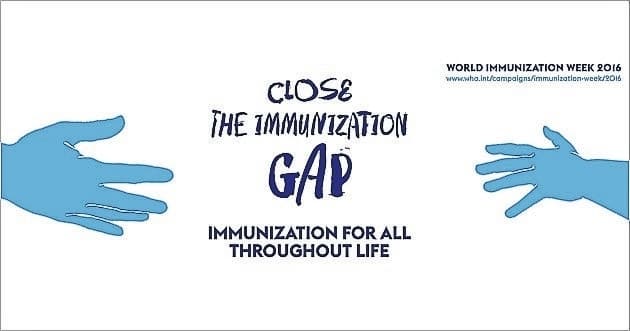
SIDNEY — “Close the Immunization Gap” is the theme for World Immunization Week, which runs from April 24-30. The World Health Organization (WHO) declares that many countries have seen certain diseases, such as polio and measles, eradicated through immunization programs for children. WHO encourages all people to help put an end to all preventable diseases by getting immunizations.
Several diseases in the U.S. are preventable, and some vaccines have been introduced fairly recently. Meningococcal immunizations have become a requirement for preteens and teenagers. Meningococcal disease can infect the lining of the brain, the spinal cord, or the bloodstream. These infections can be deadly, but are avoidable by receiving the vaccination.
Another recent addition is the HPV vaccine. HPV passes from person to person through sexual contact. About 14 million people become infected with HPV every year. The vaccine is not required, but it is recommended for males and females aged 11-26. The HPV virus can cause cancers such as cervical and penile, among others. It does not protect against other sexually transmitted diseases or pregnancy.
One reason for getting immunized is to protect a child from disease, but also to protect others. Those with compromised immune systems are vulnerable to the diseases a child may carry. Also, babies are not old enough to be fully immunized and are vulnerable, as well. Parents must notify emergency personnel and doctors if their child is not fully immunized. This will alert them to possible diseases your child may be suffering from, as well as allow them to protect a child from being exposed to these diseases.
Local schools allow for personal belief exemptions, but some school districts in other areas do not. Immunizations are required to protect all children from preventable diseases. The school system and doctor will let you know of the suggested vaccine schedule.
“Vaccines are very safe. Most vaccine reactions are usually minor and temporary, such as a sore arm or mild fever. Serious health events are extremely rare and are carefully monitored and investigated,” said officials with WHO. “You are far more likely to be seriously injured by a vaccine-preventable disease than by a vaccine. For example, in the case of polio, the disease can cause paralysis, measles can cause encephalitis and blindness, and some vaccine-preventable diseases can even result in death. While any serious injury or death caused by vaccines is one too many, the benefits of vaccination greatly outweigh the risk, and many more injuries and deaths would occur without vaccines.”
WHO also discounts the belief that there is a link between vaccines and autism.
“The 1998 study which raised concerns about a possible link between measles-mumps-rubella (MMR) vaccine and autism was later found to be seriously flawed, and the paper has been retracted by the journal that published it. Unfortunately, its publication set off a panic that led to dropping immunization rates, and subsequent outbreaks of these diseases. There is no evidence of a link between MMR vaccine and autism or autistic disorders,” said WHO officials
WHO hopes to reach all campaign goals by the end of the campaign in 2020.
The Shelby County Health Department administers vaccinations by appointment. The office is located at 202 W. Poplar St., Sidney and can be reached by calling 937-498-1111.


